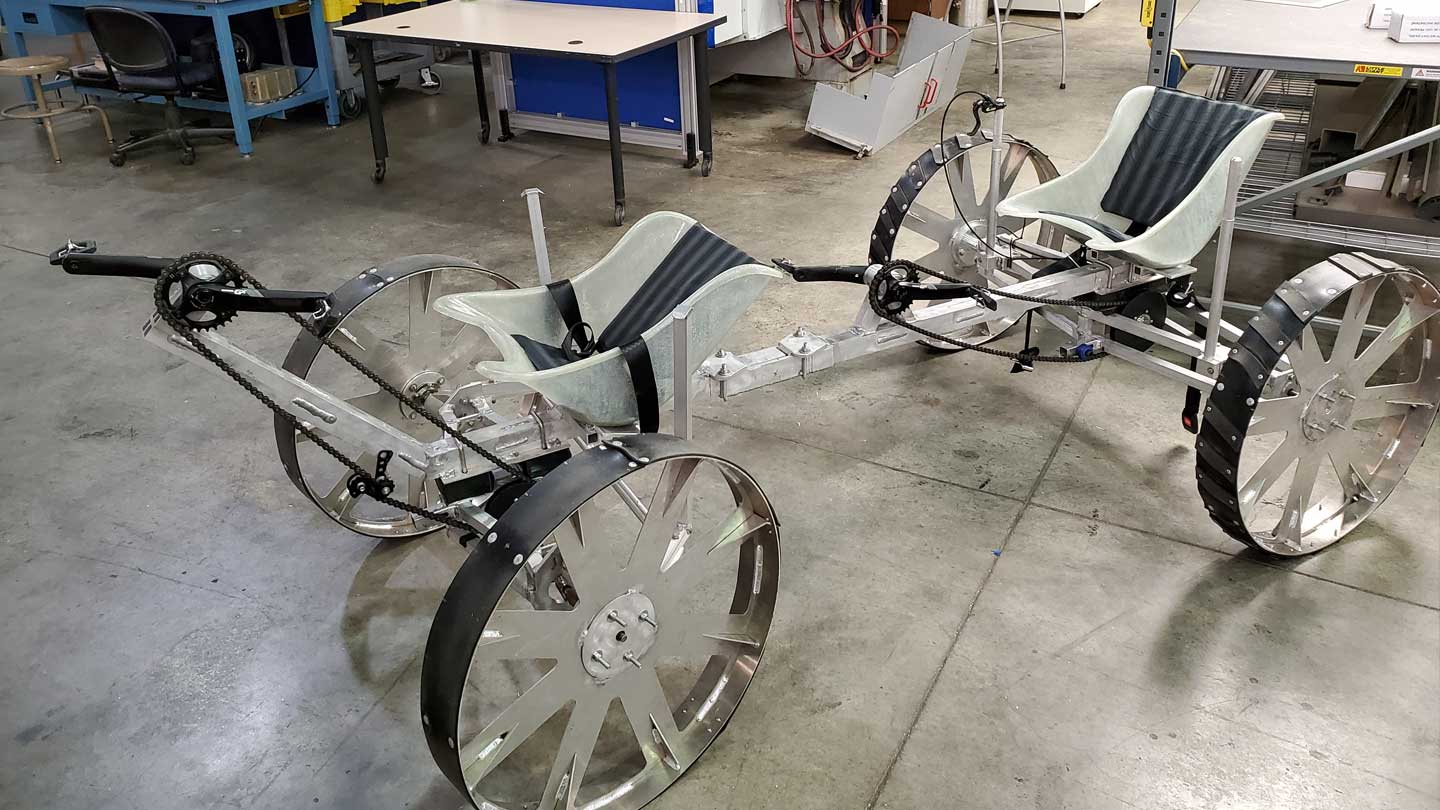
Light weight and simplicity were the hallmarks of the Falcon rover, which weighed in at under 150 pounds.
UAH
Team Falcon, one of two rover teams competing from The University of Alabama in Huntsville (UAH), a part of the University of Alabama System, has won third place overall in the collegiate division at NASA’s Human Exploration Rover Challenge (HERC).
Team Falcon relied on light weight and simplicity when it redesigned a rover from a previous class for the pandemic altered competition. The rover weighed in under 150 pounds, extremely light compared to other rovers in the UAH fleet.
HERC judging was virtual this year and the in-person moon obstacle event at the U.S. Space & Rocket Center was cancelled. In January, MAE 490/1-05 Senior Design Moon Buggy class teams Falcon and Twisted Metal presented a design review to a NASA panel consisting of subject matter experts. The teams then presented an operational readiness review to the same NASA panel in March. The competition also included video presentations.
David Fikes, a mechanical and aerospace engineering lecturer who teaches the class, praised both teams.
"The students were willing to put in the time that it took to do the extra things that are required to successfully build a rover," Fikes says. "They met a lot on weekends to get the work done. The pandemic didn't seem to slow them down that much. Some put in many, many extra hours to complete their project."
For more than 25 years, the annual NASA HERC has tasked high school and college teams from around the world to design, build and test a human-powered rover capable of traversing simulated terrain from the moon, Mars and other rocky planets. Along the way, teams are also required to complete scientific tasks, reflecting spacewalks that were completed during NASA’s Apollo Program and may be completed during NASA’s Artemis Program.
HERC is managed by the Office of STEM Engagement at NASA’s Marshall Space Flight Center in Huntsville. The competition reflects the goals of the Artemis program, which seeks to put the first woman and first person of color on the moon. NASA’s Office of STEM Engagement uses competitions to further the agency’s goal of encouraging students to pursue degrees and careers in the science, technology, engineering and mathematics fields.
Falcon team members:
- John Baggett, team lead, senior, mechanical engineering, Clarksville, Tenn.
- Susan Duron, rider and practice course lead, senior, mechanical engineering, Fairview, Tenn.
- Maggie Fielder, social media lead, senior, mechanical engineering, Kennesaw, Ga.
- Julia Fullinwider, team financial lead, senior, mechanical engineering, Huntsville, Ala.
- Lindsey Kaesemeyer, task design and integration lead, senior, mechanical engineering, Lebanon, Ohio
- Robert Lewallyn, rider and design team, senior, mechanical engineering, Dunwoody, Ga.
- Haley Schumann, financial team and backup rider, senior, mechanical engineering, Hazel Green, Ala.
- Luke Smith, financial and design team, senior, mechanical engineering, Raleigh, N.C.